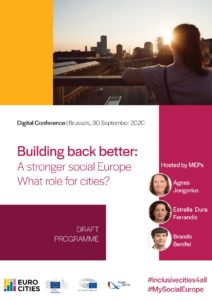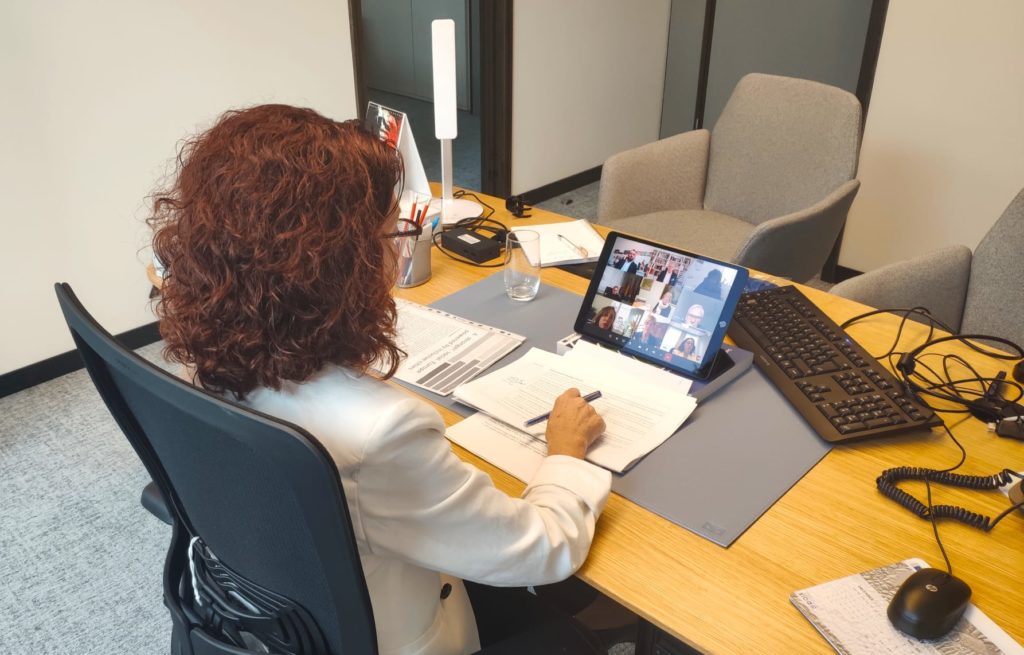On 30 September of 2020, I was a speaker at an online conference organised by Eurocities.
Eurocities is a network of 190 cities in 39 countries across the European Union that cooperates with the European Committee of the Regions to ensure that both cities and their citizens are heard.
The aim of the event was to trigger a political dialogue between city Mayors and Members of the European Parliament on how to work together to achieve a Social Europe that leaves no one behind. In particular, to discuss the role of cities in the implementation of the European Pillar of Social Rights.
Topics such as European policy solutions that address the rising levels of poverty and inequalities in cities have been discussed. Further, the conference dealt with the increasing demand for social services in cities and how the EU can support social investment at local level.
During my intervention, I defended that housing is a fundamental right in order to live a life in dignity. It allows us to freely develop our personality. The violation of this idea calls into question people’s physical and mental integrity. As shadow rapporteur to the European Parliament’s report on “Access to affordable, decent housing to all” I developed some Socialist proposals such as: an increase in social housing and support of a new concept for affordable social housing for all (not only vulnerable groups), support at European level of the the Housing First programme in order to fight homelessness, to rule out social expenditure from financial policies, improve the social housing indicators of the European semestre, improve information on access to European funds for housing at the local level, support a circular economy in the construction sector, effective measures to tackle energy poverty and to ensure the supplies of basic services to all homes and, above all, strict measures in relation to evictions.
On their side, the municipal representatives that took part in the conference showed their commitment with Eurocities to a variety or programmes in areas such as education, training & lifelong learning; gender equality; equal opportunities; active support to employment; secure and adaptable employment; work-life balance; childcare & support to children; minimum wage; healthcare; the inclusion of people with disabilities; long-term care; housing and assistance for the homeless.
Big political changes have never come from the top but from the bottom. It is at the local level where changes start but cities cannot do this alone. Cooperation with regional, national and European government levels is needed.
We have a big challenge ahead of us. Cities must put effort into achieving real social development, tied to values of social equality, ecological sustainability, economic efficiency, political participation, pluralism and cultural integration.


